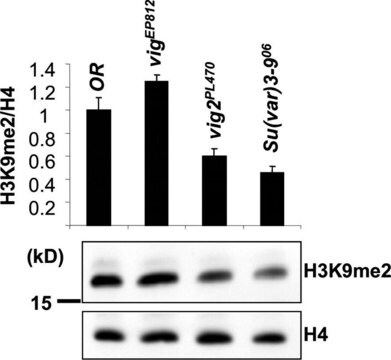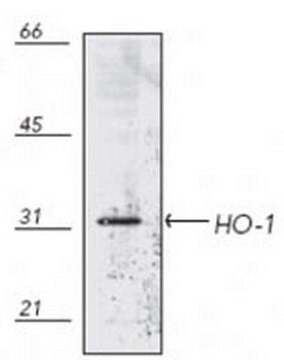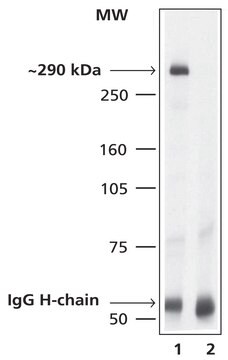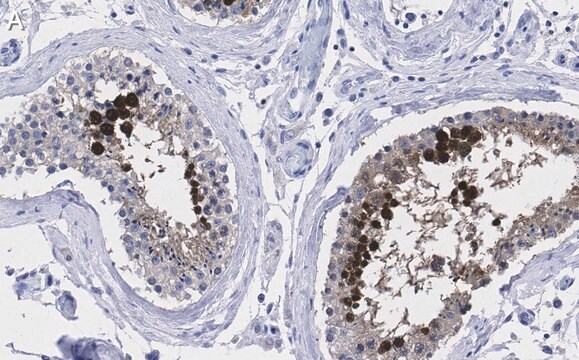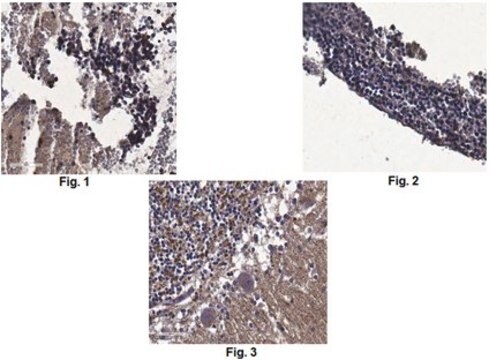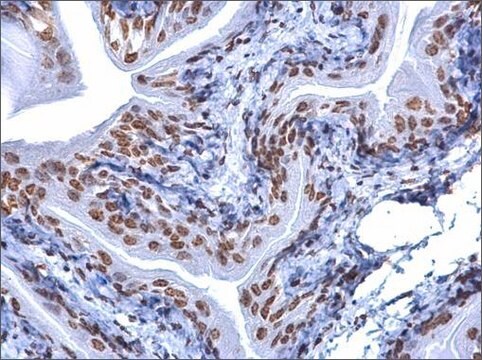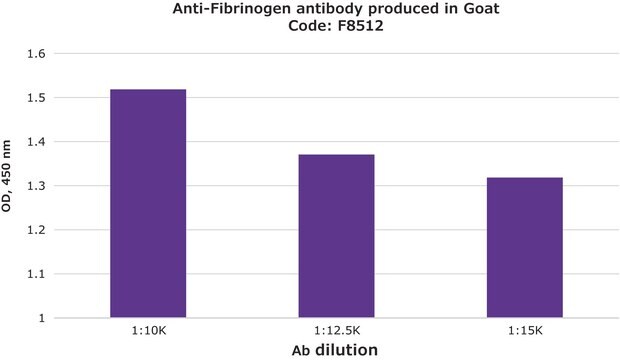MABS441
Anti-WBP2 Antibody, clone 4C8H10
clone 4C8H10, from mouse
Synonym(s):
WW domain-binding protein 2, WBP-2
About This Item
Recommended Products
biological source
mouse
Quality Level
antibody form
purified immunoglobulin
antibody product type
primary antibodies
clone
4C8H10, monoclonal
species reactivity
human
technique(s)
immunocytochemistry: suitable
immunohistochemistry: suitable
immunoprecipitation (IP): suitable
western blot: suitable
isotype
IgG1κ
NCBI accession no.
UniProt accession no.
shipped in
wet ice
target post-translational modification
unmodified
Gene Information
human ... WBP2(23558)
General description
Immunogen
Application
Immunocytochemistry Analysis: A representative lot detected WBP2 in transfected HeLa cell fixed with 4% paraformaldehyde at 20 ug/ml
Immunoprecipitation Analysis: A representative lot immunoprecipitated transfected V5-WBP2 from HeLa cell
Signaling
Apoptosis & Cancer
Growth Factors & Receptors
Quality
Western Blotting Analysis: 2.0 µg/mL of this antibody detected WBP2 in 10 µg of MDA-MB-231 cell lysate.
Target description
Physical form
Storage and Stability
Other Notes
Disclaimer
Not finding the right product?
Try our Product Selector Tool.
Storage Class
12 - Non Combustible Liquids
wgk_germany
WGK 1
flash_point_f
Not applicable
flash_point_c
Not applicable
Certificates of Analysis (COA)
Search for Certificates of Analysis (COA) by entering the products Lot/Batch Number. Lot and Batch Numbers can be found on a product’s label following the words ‘Lot’ or ‘Batch’.
Already Own This Product?
Find documentation for the products that you have recently purchased in the Document Library.
Our team of scientists has experience in all areas of research including Life Science, Material Science, Chemical Synthesis, Chromatography, Analytical and many others.
Contact Technical Service
